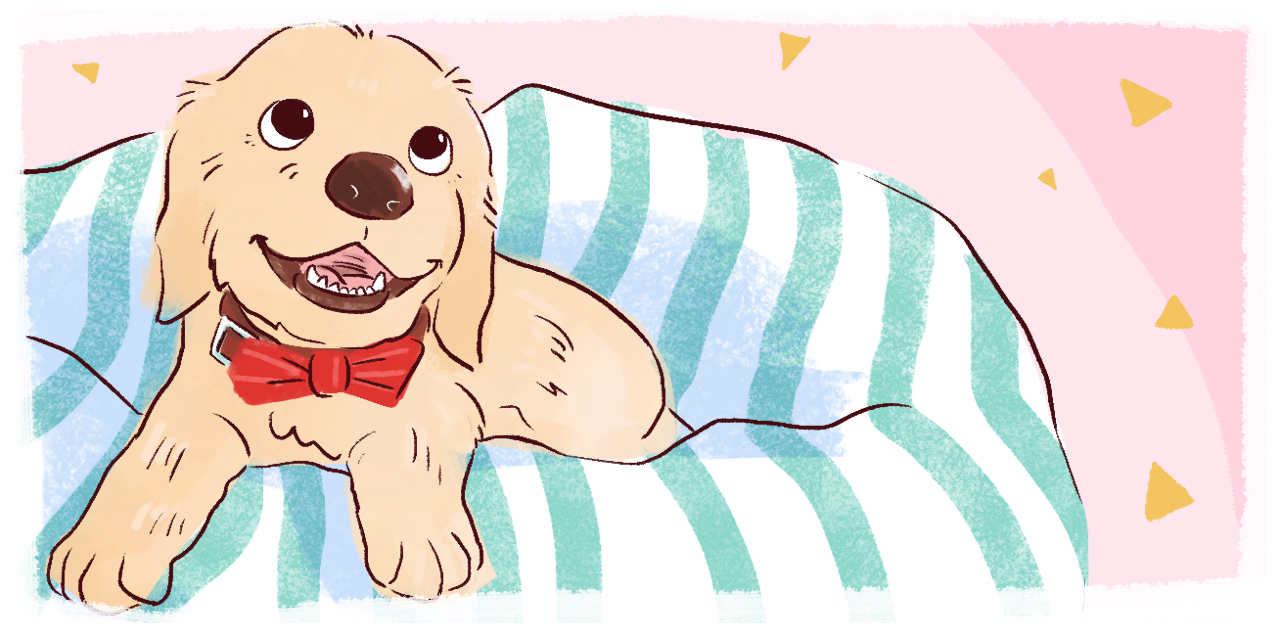
When you get a new puppy, there's a lot to learn. You'll need to educate yourself on how to properly take care of your pup — everything from how to successfully potty train and crate train your dog to how to handle broken nails and what to do if your pup (eek) get fleas. You’ll also want to know how to help your pup get through the teething process and learn how to care for tiny puppy teeth, and you’ll definitely want tips on providing comfort when your puppy won’t stop crying.
On top of all of that, puppies have dental hygiene needs that are an important part of maintaining their overall health. But making sure that your pup’s teeth are in tip-top shape isn’t the same as taking care of your own chompers.
From puppy teeth basics and how to get your dog used to teeth cleaning to the types of dental issues you should look out for, here’s everything you need to know about how to care for your puppy’s teeth.
Puppy Teeth Basics
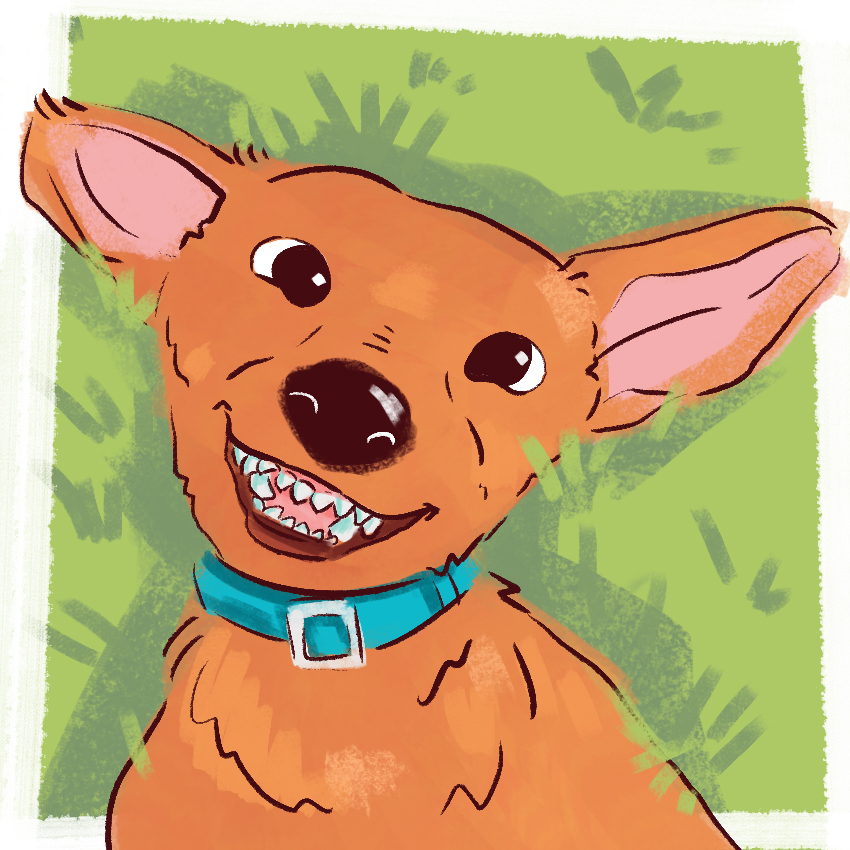
Puppies, like us, are born without teeth. But when they’re around 2 to 4 weeks old, their baby teeth, or “milk teeth,” start to come in. Your puppy will have 28 sharp little chompers that pop up fairly quickly before falling out to make way for 42 adult teeth (in most breeds; some smaller breeds might have less).
Puppy Teething
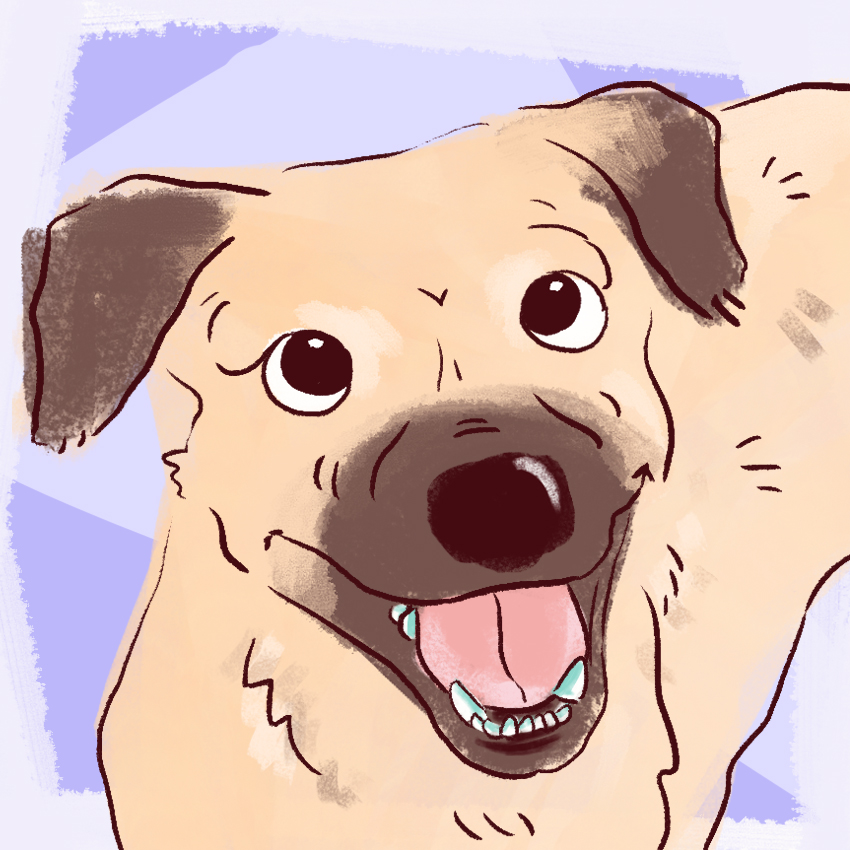
At around 4 months, your puppy’s milk teeth will start to fall out to make room for adult teeth. The teething process might cause your pup some discomfort, and the need to chew will be intense. There shouldn’t be any cause for concern as long as your pup is still eating, drinking, and playing normally.
However, if you notice any change in your pup’s behavior, then you can check the mouth area yourself or, if you believe it is more serious, talk to your vet.
Get Your Puppy Used to You Touching His Mouth
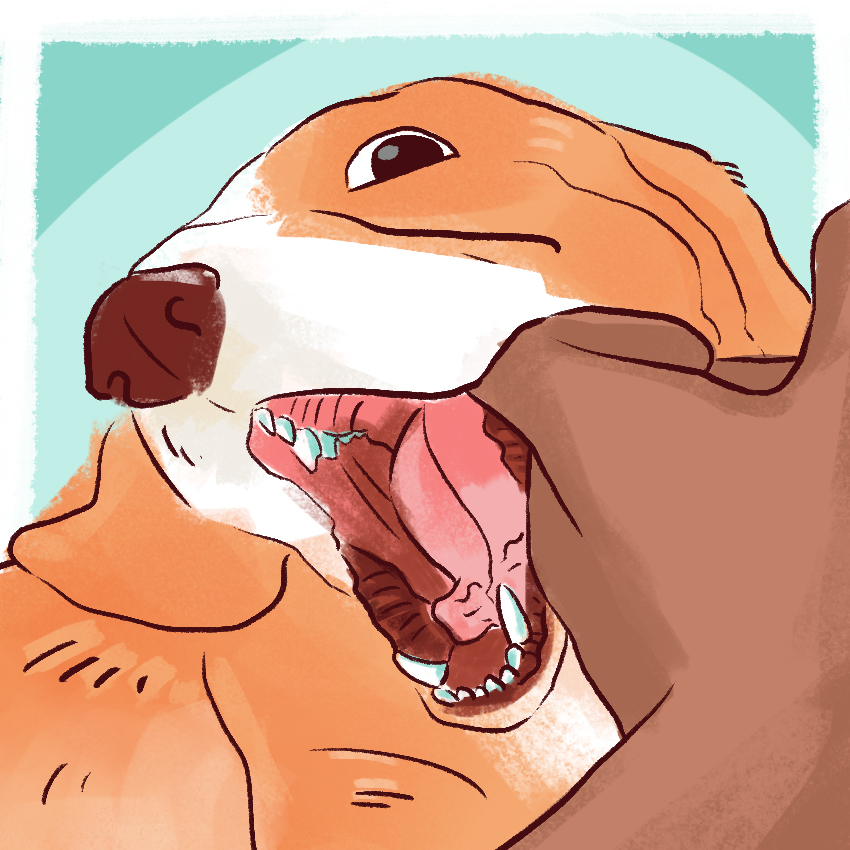
To brush or check your puppy’s teeth, you’ll have to poke around his mouth every once in a while, which is something you should get him used to beforehand. Start early by playfully touching your puppy’s gums and teeth as well as lifting his lips. This will help your puppy form positive feelings around the experience and make your pup much more relaxed when it comes to brushing his teeth and any future mouth-related vet visits. Just be sure to wash your hands before and afterward.
Brushing Your Puppy’s Teeth
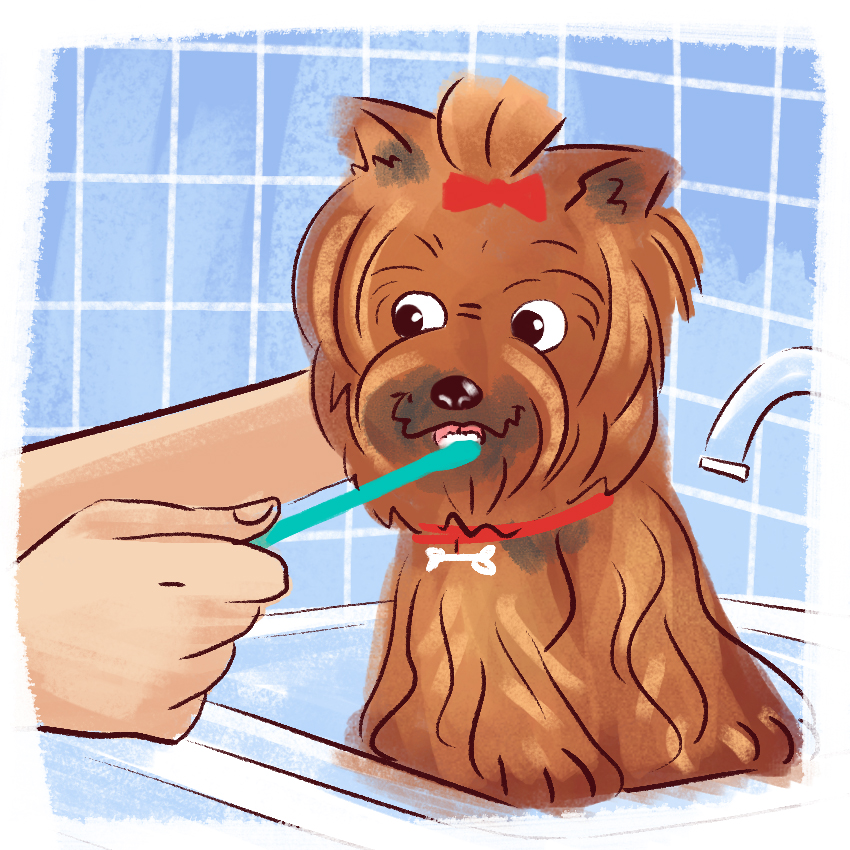
During the teething stage, it might be a good idea to start brushing your puppy’s teeth with a very soft-bristled brush — again, to help get your pup get used to the feel and to help prevent any future dental problems. Always use special dog toothpaste, because toothpaste that is meant for humans can contain fluoride and xylitol, which can be toxic for your pup.
Consider a Deep Cleaning
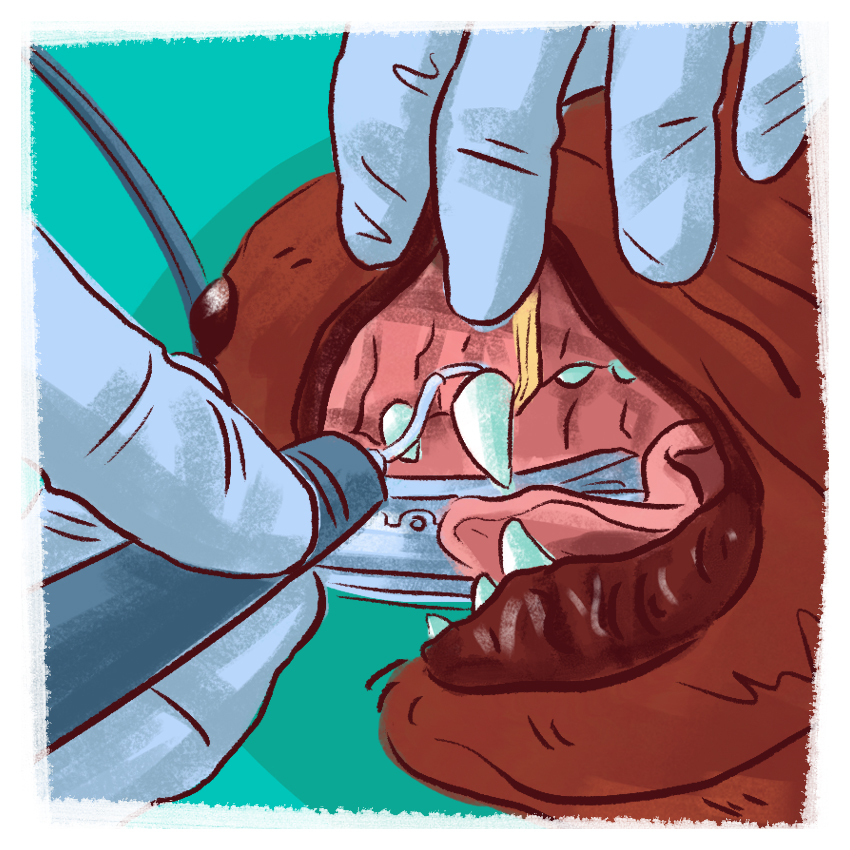
Regularly and thoroughly brushing your puppy’s teeth is a great way to keep your pup’s dental health in good shape. But for those hard-to-reach areas and to make sure the gums get proper treatment, it might be a good idea to book a deep cleaning with a professional.
However, you should be aware that this means your dog will likely go under anesthesia. And while that might make a few puppy parents nervous, it’s merely done to ensure that an accurate exam can be performed. If you feel like your pup is showing signs that his dental health might be at risk, it could be time to ask your vet about deep-cleaning options.
Give Your Puppy Chew Toys
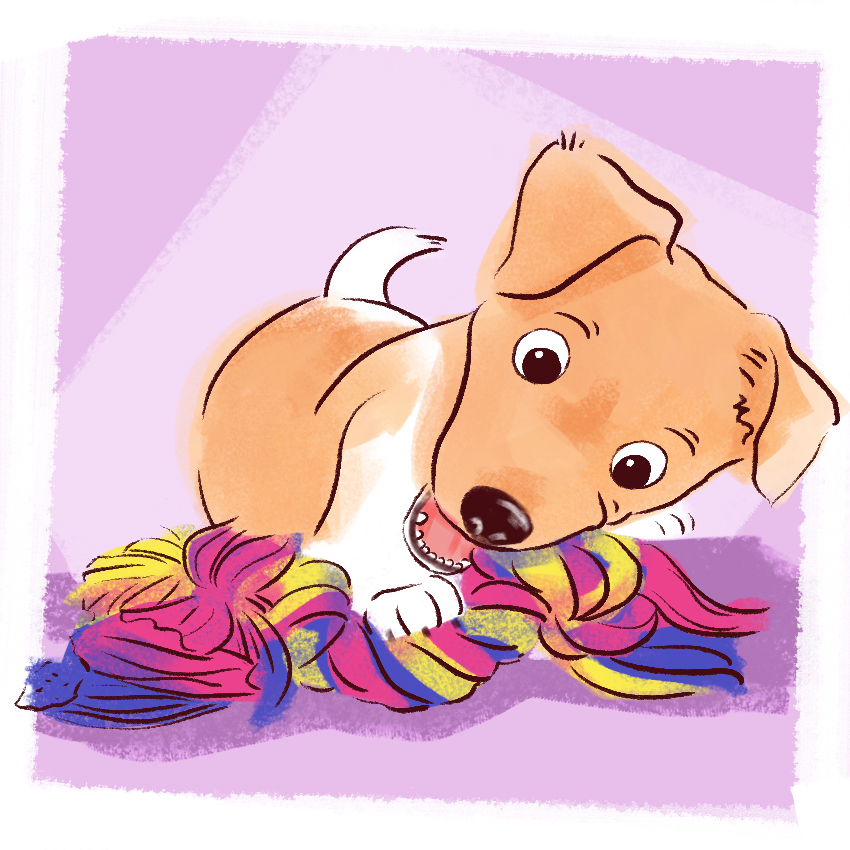
Your puppy will be eager to chew anything and everything that he can get his teeth on, which is why it’s important to provide him with toys that are safe for his chompers. Try soft teething toys and toys that are firm but also have some flexibility. Hard toys can cause chipped or broken teeth, so if you can’t make a dent in the toy with your fingernail, then it might be too hard for your puppy’s growing teeth. Also, toys that you can cool can help soothe your pup's irritated gums while he's teething.
Feed Your Puppy Food That’s Good for Healthy Teeth
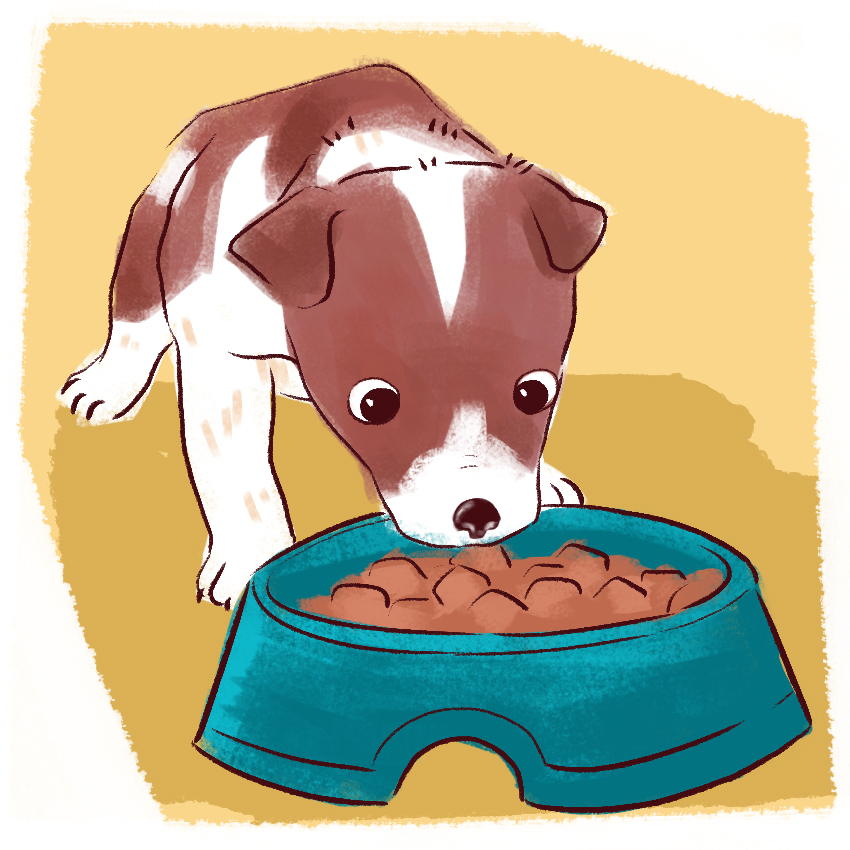
Be sure that you’re giving your puppy food that’s good for his dental health. Dry food is an excellent choice to help clean your pup’s teeth, because the act of chewing the hard bits scrapes off any leftover food, plaque, or bacteria that might be lingering. Wet food, on the other hand, can get stuck in the gums or between teeth and may cause some issues. If you are currently using soft food, you can slowly start mixing in dry kibble to get your pup used to the taste and texture of the hard option and eventually phase out the wet food. Or if wet food is needed, you can alternate days with the dry kibble, which can keep your dog’s teeth clean between brushing.
Give Your Puppy Dental Dog Treats
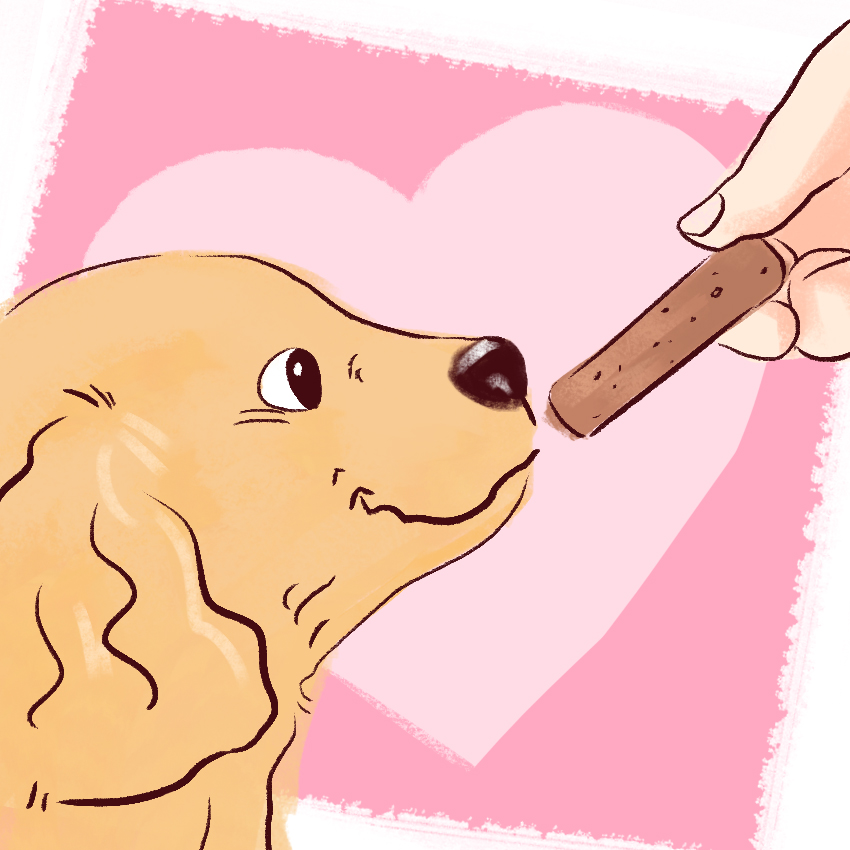
Dental dog treats work to scrape off excess food and plaque from dogs' teeth while sometimes also freshening their breath. The treats can be a great addition to your puppy's dental routine, but it’s important to check that the treats have been approved by the Veterinary Oral Health Council (VOHC) to make sure that any claims have been tested and verified.
Establish a Consistent Dental Care Routine
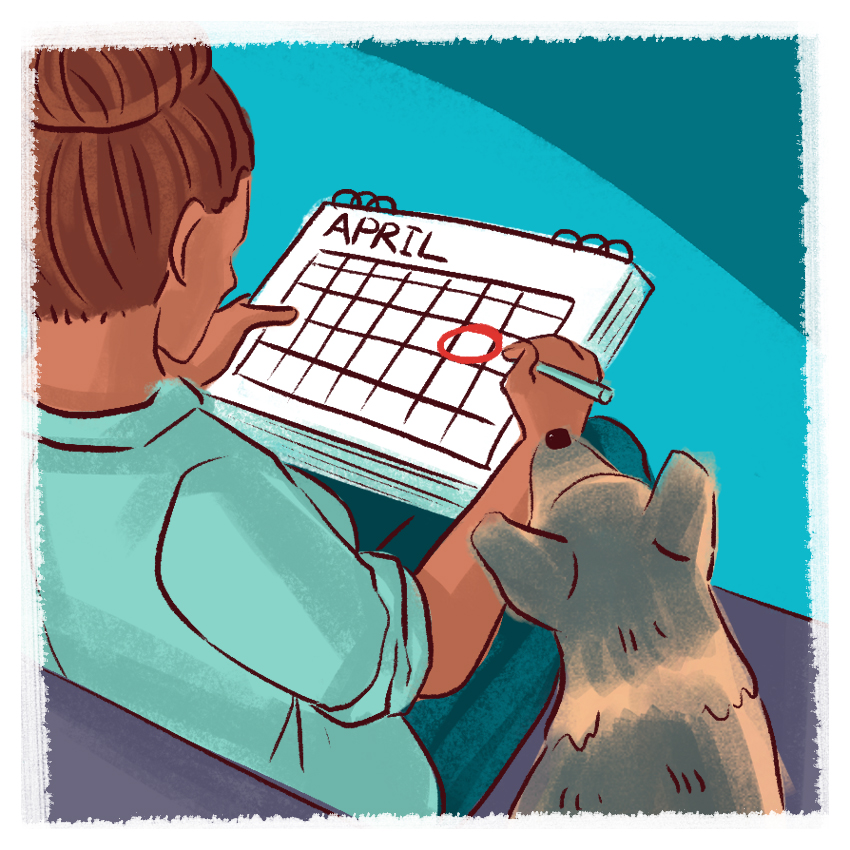
A good dental care routine for your puppy is just as important as exercise and diet. Your pup can benefit from a daily brushing or at least a good cleaning every three days, and giving your dog dental treats and dry food will help fight some buildup in between. If you keep the experience positive and stress-free, then your pup might find teeth-brushing time as much fun as playtime.
Keep an Eye Out for Problems
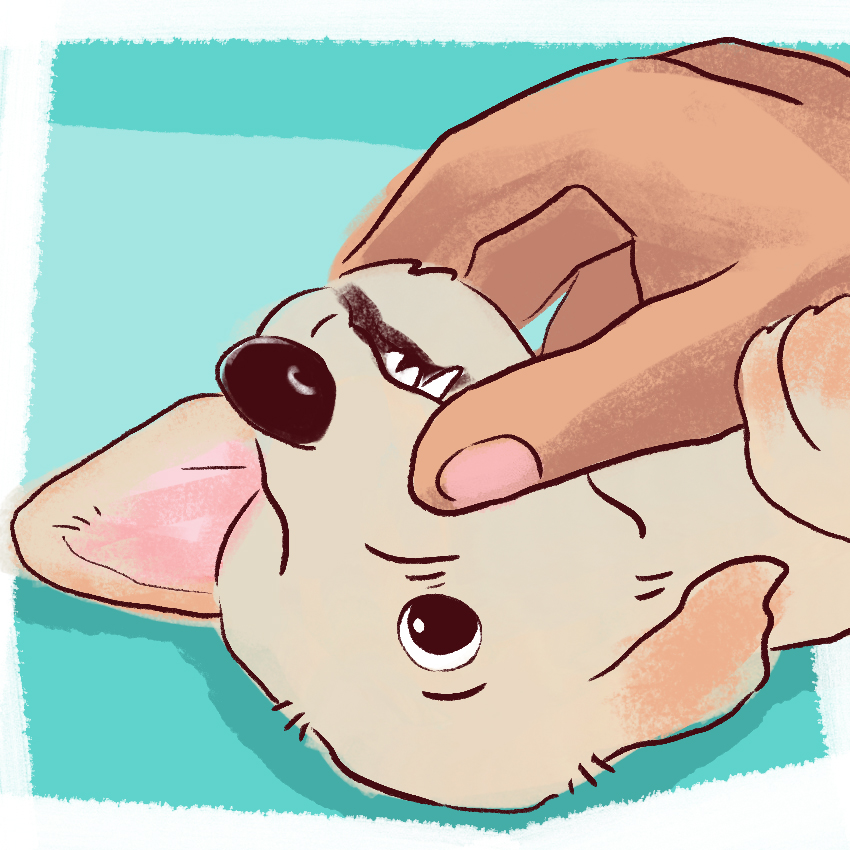
A regular routine should also involve looking for any possible problems. If you notice bad breath, excessive drooling, blood in the saliva or on the gums, or a loss of appetite, then it could be a sign of dental health problems and possibly other troubles or infections elsewhere in the body. If you suspect something might be up with your pup, then reach out to your vet for help.
If Your Puppy Loses a Tooth
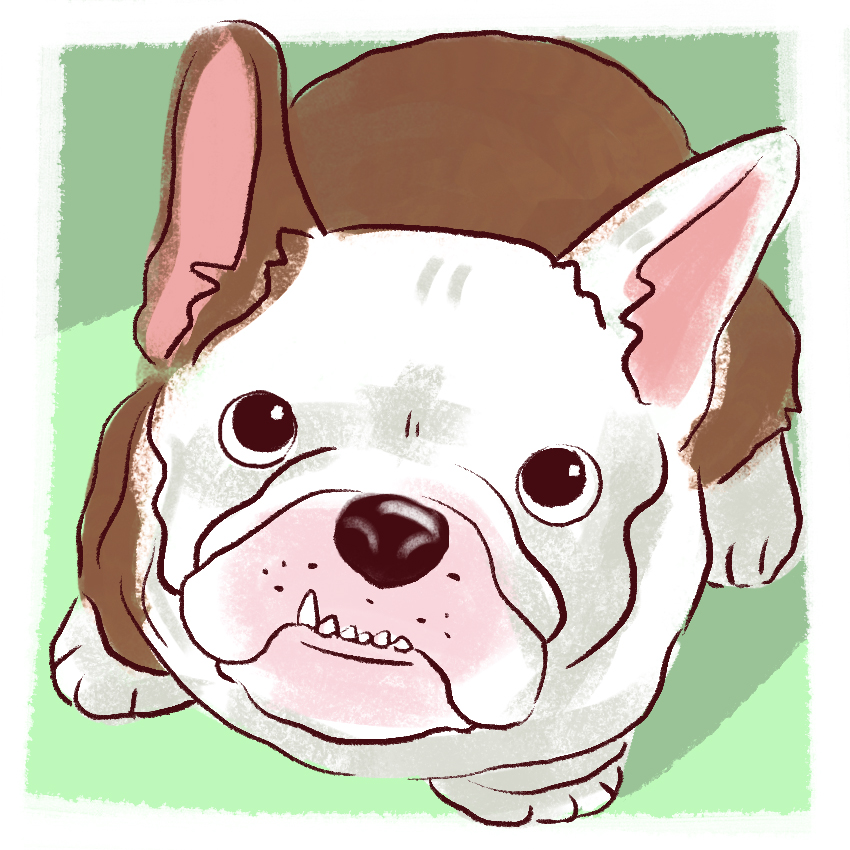
By the time your puppy is around 6 to 8 months old, his milk teeth will have fallen out and been replaced by adult teeth. This process is natural, but if your dog’s adult teeth have fallen out, this is a cause for concern. Periodontal disease can be caused by bacteria and food that form plaque, causing tooth decay and tooth loss in dogs.
If your pup has lost an adult tooth, it’s time to head to the vet. If it's a large tooth (like a canine), try putting the tooth in some milk and taking it to the appointment, because the vet might be able to save either the tooth or the root.
Dealing With a Broken Tooth
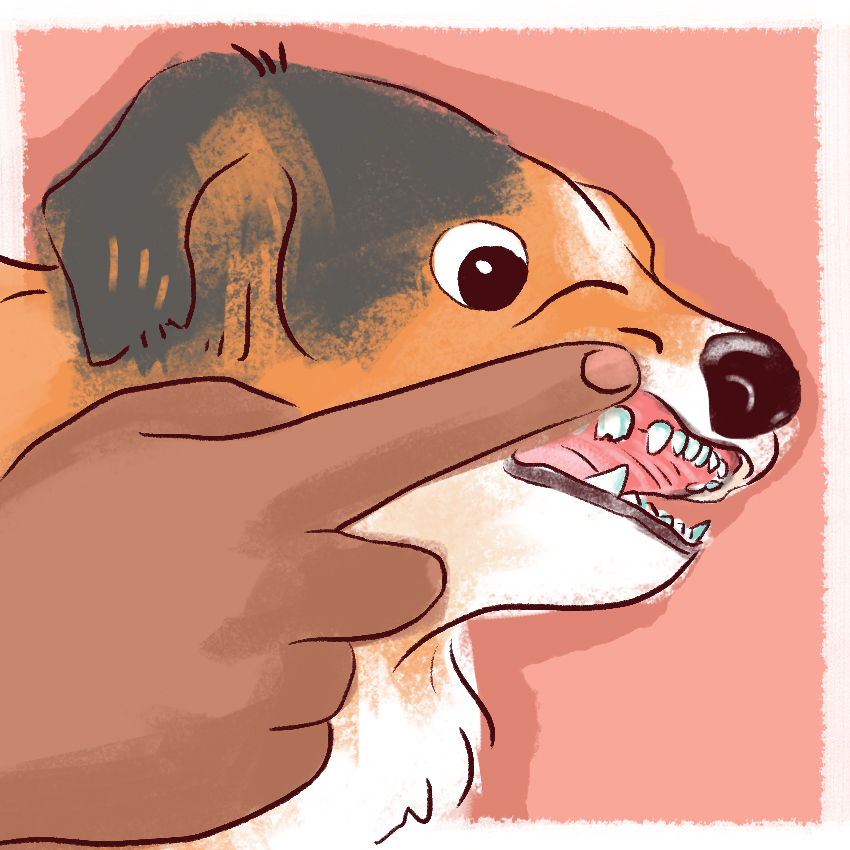
A chipped or cracked tooth could be caused by many things, such as chewing on a hard bone, branch, or toy. Your pup might have bumped into something or had a random accident. Whatever the reason, you should contact your vet immediately to help you handle the situation.
Some Breeds Face More Issues Than Others
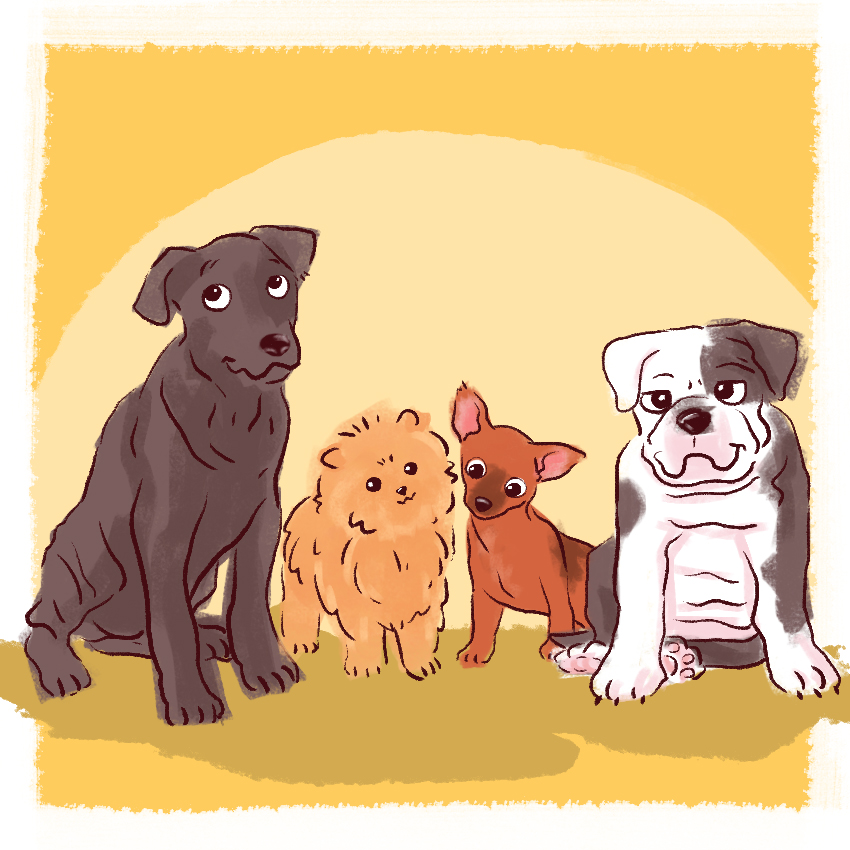
Periodontal disease is the most common dental problem among all dogs, but some breeds are more prone to issues than others. Pugs, Yorkshire terriers, Maltese terriers, and poodles are among the breeds that tend to have more problems with tooth decay, tartar buildup, and gum disease and may require more care and treatment.
Schedule Regular Checkups With the Vet
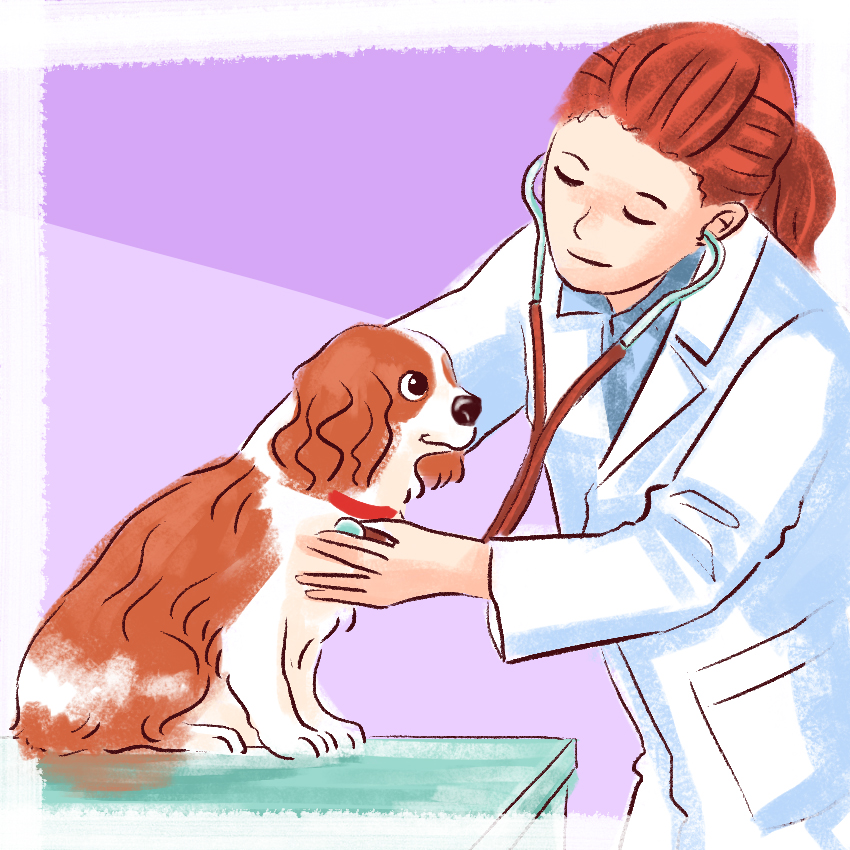
Whether you have a puppy or a senior fur baby, it’s a good idea to schedule regular checkups with your vet. From the time your puppy is born, you should take him to the vet every three to four weeks up until around 16 weeks old. You’ll then want to take him in for various vaccinations and procedures up until his first birthday, when it's time for annual checkups, which will help you monitor and evaluate your dog's health — including his teeth.
When your dog hits his senior years, it might be a good idea to visit your veterinarian about twice a year to handle any issues that pop up as dogs age, and so that your dog can keep that adorable smile for as long as possible.




